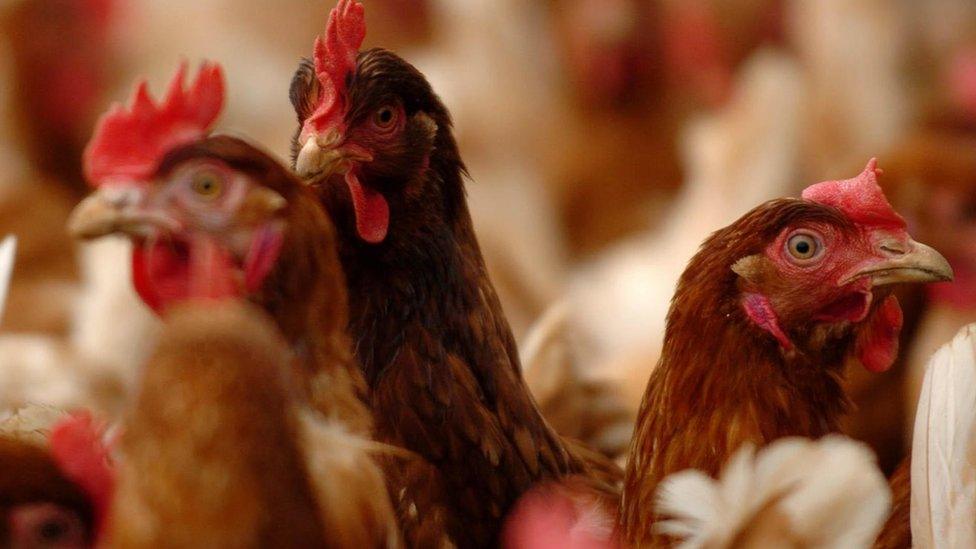Farmers warned to keep birds indoors as bird flu spreads across East of England
- Published
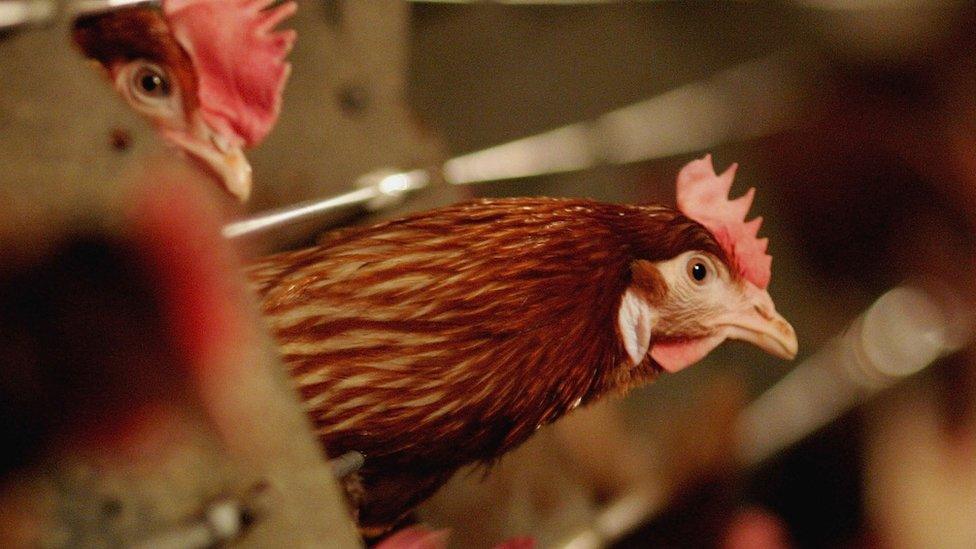
Farmers in Norfolk, Suffolk and Essex are being asked to keep flocks indoors as wild bird infections rise
The government's chief veterinary officer said she has not ruled out another UK-wide lockdown due to "unprecedented levels" of bird flu.
The country has seen it's biggest ever outbreak in the past year with more than 170 cases confirmed.
From Wednesday, birdkeepers in Norfolk, Suffolk and parts of Essex must keep their birds indoors, external and follow stringent biosecurity measures.
Christine Middlemiss described the rise in infections as a "global phenomenon".
Cases have been reported in at least 17 premises locally since last month.
The mandatory housing measures apply to all poultry and captive birds, regardless of type or size, following a decision by Dr Middlemiss on Saturday.
The affected areas were placed in an Avian Influenza Prevention Zone last month after a series of outbreaks.
Alaistaire Brice, who owns Havensfield Eggs in Eye, Suffolk, told the BBC he believed the current Defra strategy was "not working".
"We really have little or no control over the wild birds that are visiting your site - the flu is now ahead of the curve," he said.
"Defra are scrambling, trying to catch up.
"I fear the weather will get worse and the virus will get stronger."
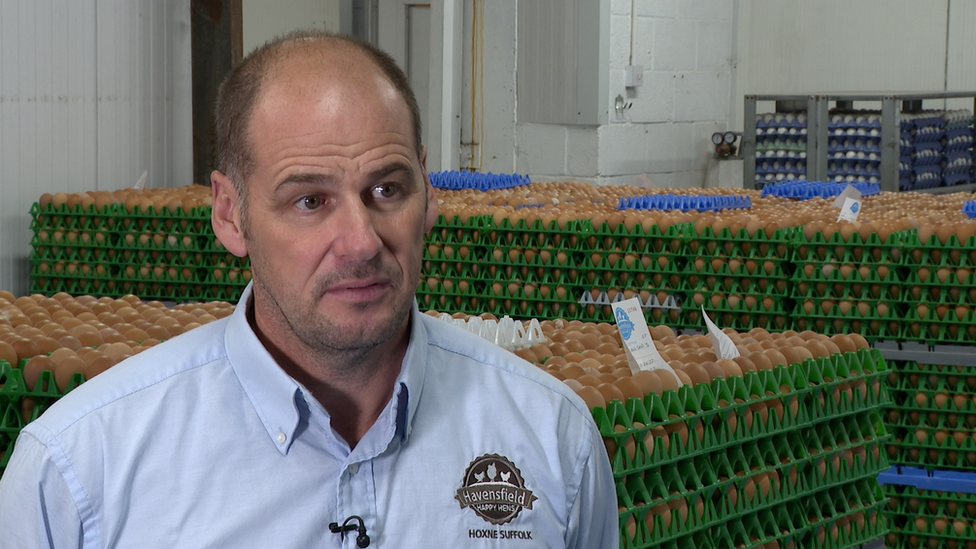
Alaistaire Brice said he is "incredibly worried" for the future of his business and the poultry industry
The Department for Environment, Food and Rural Affairs (Defra) said the housing order legally required birdkeepers to keep their flocks indoors and to follow stringent biosecurity measures.
In the UK in the past year, 161 cases of highly pathogenic avian influenza (HPAI) were detected in poultry and captive birds, leading to the culling of 3.2m birds.
This will be the second lockdown, or 'flockdown' - as it has been termed by some birdkeepers - this year.
A UK-wide housing measures lockdown was introduced by Defra on 29 November and was not lifted until 2 May this year.
Mr Brice said the biggest problem was a failure by Defra to remove dead infected wild birds from local waterways.
"We're seeing dead birds floating in rivers and on ponds and on lakes throughout the whole of East Anglia and they stay there and they rot," he said.
"No-one is picking up those infected carcasses and disposing of them properly."
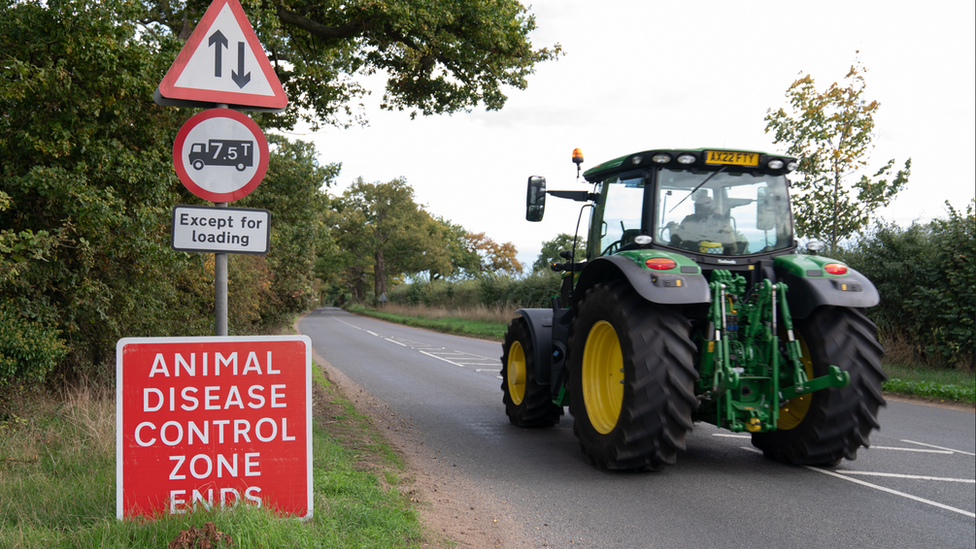
Bird owners have been told to keep flocks indoors as a Housing Order comes into force on Wednesday
Dr Middlemiss told BBC Radio 4's Today programme it was "a most unusual year", with an "unprecedented level of infection in wild birds over the winter that came in migratory birds".
"That has lasted in our own wild bird population over the summer for the first time ever," she said.
"Another lockdown across GB is quite possible.
"With the level in wild birds there is little we can directly do to manage it. That's a global phenomenon."
She said bird owners should consult their local authority or landowner about the removal of dead birds in the first instance.

Find BBC News: East of England on Facebook, external, Instagram, external and Twitter, external. If you have a story suggestion email eastofenglandnews@bbc.co.uk
- Published11 October 2022
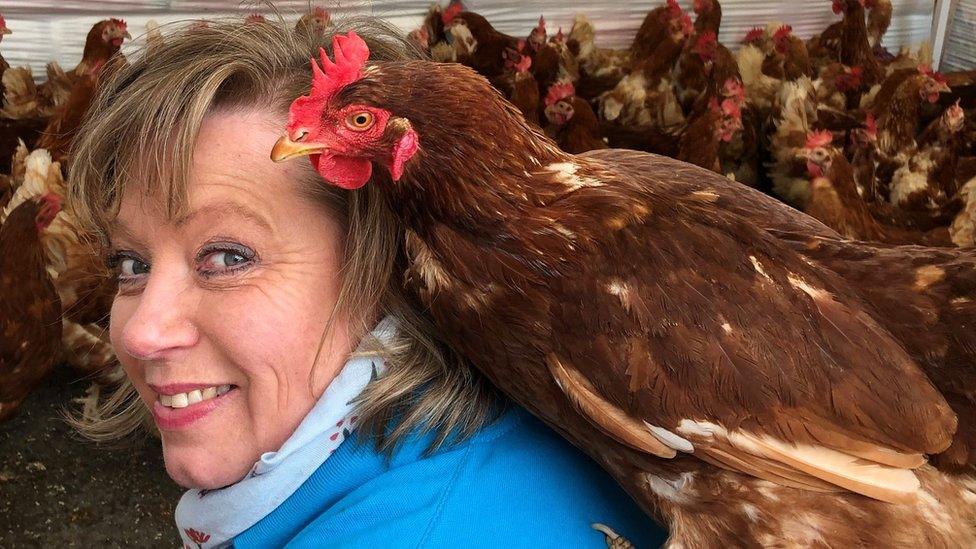
- Published8 October 2022
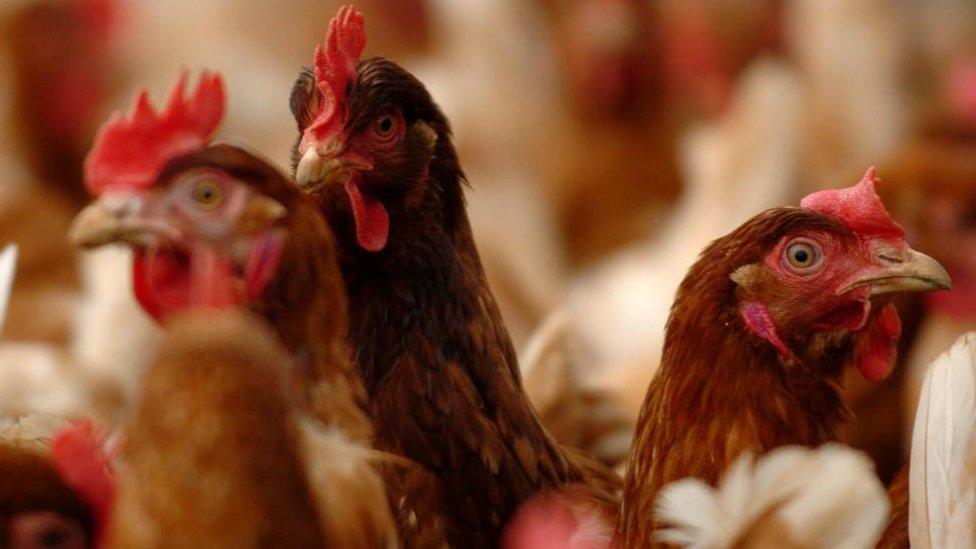
- Published3 October 2022
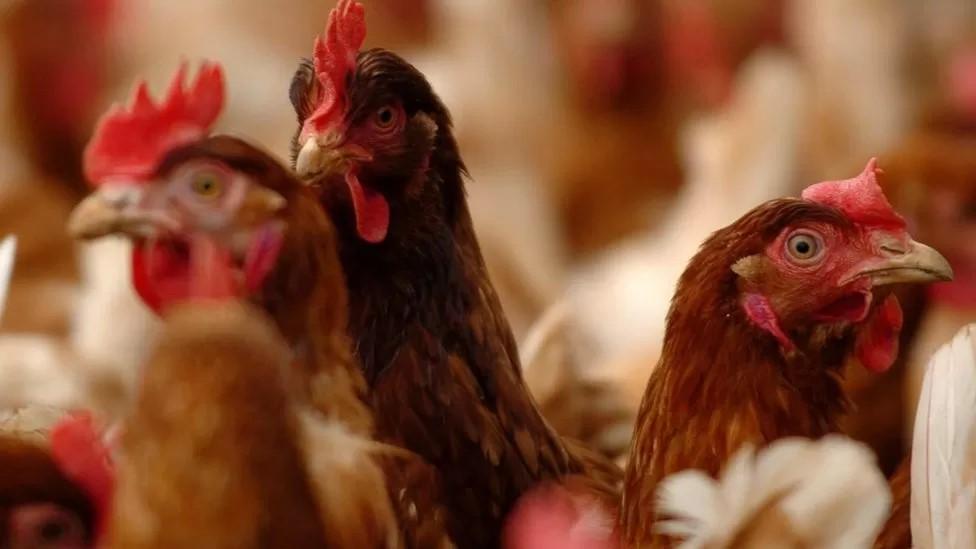
- Published29 September 2022
